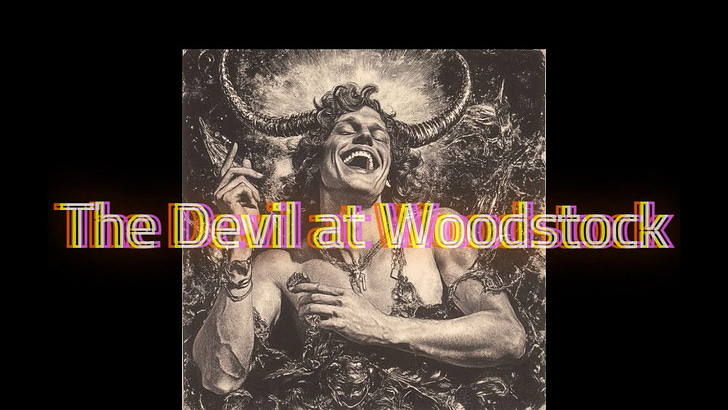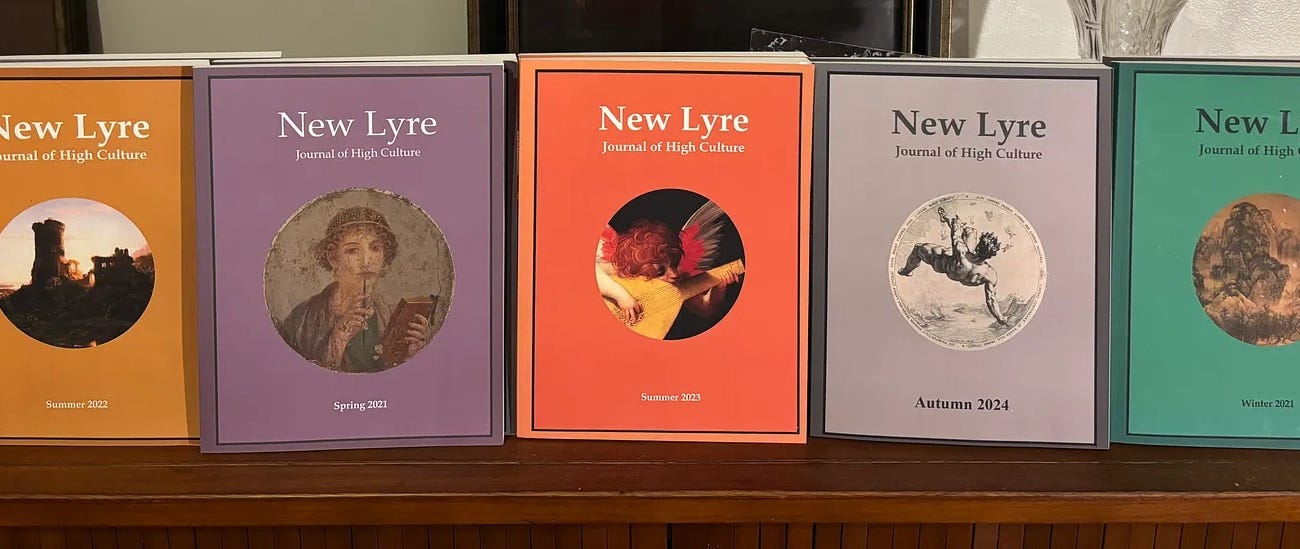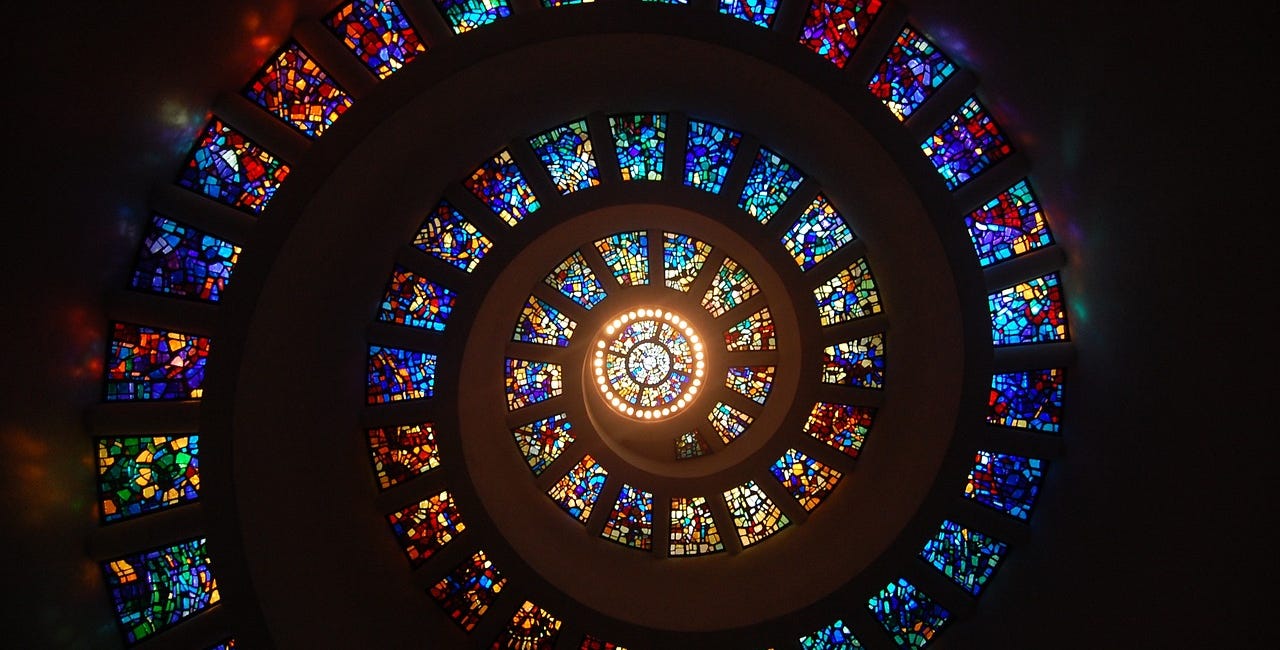I
“Oh dark dark dark. They all go into the dark.”
And so, above the cobblestones, on feet
So white and graceful as to seem in flight,
Our sandalled guide escorts us through the wall.
We pass a herm, then pass to road from street
And enter on the Appian Way. The light
Is brazen and the heat eternal. All
Is shocked into a muted brilliance,
Which gilds all equally, and hides its wealth
In deeper richness; as New England fall;
The yellow green and umber feeds the sense
So richly as to cover all with health
And glory; as the dead and golden bough
Aeneas broke, as token for his crossing
To damned Hades. Classic. Living. Dead.
Formal as music through which breathing now
Makes momentary passage; such the glossing
Given of sun. High heat has signeted
His order which the night shall disavow.
II
“Oh living pine, be still!”
After the miles of fields and umber bricks,
We pause at San Sebastiano, drawn
By dead Bernini’s living stone.
Salvator Mundi, limpid and yet thick
With energy, as of the cresting dawn.
Its shape cries out, as if in baritone
Of Jovian magnanimity; the hand
Raised both to set aside and benedict
Whatever waits to bear His likeness. Blown
By the western winds of spirit’s fatherland,
God’s mane falls royally. Words can’t depict
The light as it is bodied into marble,
As in the arrested movement of the ice
Of winter’s curling rivers, thick with curd
Of silence; waters that no longer warble.
Often such silence will alone suffice.
A sparrow flies from vault to apse, absurd;
Then flutters out to perch above a corbel.
III
“Each in his narrow cell forever laid.”
We reach, at last, Callixtus’ catacombs,
Descending through this portal in the earth,
The priest recites his facts and dates, the glare
Of wired lamps revealing shelves; the homes
Proper to flesh. The metaphor of birth,
A second birth becomes most pregnant there
So near the wombs of the embryonic dead,
Although the tombs are empty. Latin, Greek,
Is carved in marble fragments, marking where
Peter’s successor slept, where newly wed
To Christ, some child was placed. We speak
In whispers if at all. The inlaid floor
Depicts a chi-rho; here the eucharist
Was celebrated; unseen flesh of God
Fragmented in this cave of damp and poor
Collected bones. The passages insist,
In lengths and depths that leave us over-awed
On that for which there is no human cure.
IV
“The darkness and light to thee are both alike”
Necropolis of memory; behold
Beyond your walls, your brickwork nautilus
The earth rolls silent in its gravity;
Beyond the circle of your lamp, the cold,
Intentless dark. You are a liminus,
A knife’s edge, or a prow within a sea,
Whose waves are nothing. Time itself is lost
In passing, not when it is past, and death
Is master of it all, has mastery
Of life itself in change and suffering. Crossed
With passage of your ghosts, the very breath
Of life seems denser in your atmosphere
Which rests unmoving on the stucco’s paint.
The featureless, reclining figures showing
“Here lies a slave; a soldier.” Can thought cohere
Or its philosophy in death’s attaint?
Has nature wrought in vain? From that bestowing
We have some knowledge, mid desire and fear.
V
“Two gates the silent house of Sleep adorn;
Of polish’d ivory this, that of transparent horn.”
“A change only, and not the journey’s end;”
Recites the priest within the final tomb.
“Such their belief, and such their living hope.”
He blesses us, and as we each ascend
Into the daylight’s warmth from colder gloom,
I wonder as the next group starts to grope
The metal railing of that narrow stair
And to begin their own assured descent
Into the voided earth; what is the scope
Of our existence? Shall the soul outstare
The sublime annihilations Time has bent
Towards his children? If such hope be true,
In it alone is justice ultimate,
Or mercy possible. It is no proof;
But a commitment, not just to the New
Jerusalem but to the old. Man’s fate
Is that he needs a heaven to raise his roof;
Gods make us men; make us immortal, too.
Michael Yost is a poet and essayist living in rural New Hampshire with his wife and children, as well as an alumnus and the Director of Admissions at Thomas More College of Liberal Arts. He earned his M.F.A. in Creative Writing from the University of St. Thomas in Houston Texas. His essays and poems have been published in places like The University Bookman, Dappled Things, Crisis Magazine, the St. Austin Review, The Brazen Head and Hearth and Field. Follow him on his Substack, The Weight of Form.
The West is in need of a Renaissance, and it begins with culture, art and literature. Please support our journal, films and productions—by taking out a premium subscription (just $5 per month).
Discover more of Michael’s work
New Lyre Podcast #30: The Preservation of Fire
“Tradition is not the worship of ashes, but the preservation of fire”









Like any longer work of quality, this poem takes the reader on a journey - in this case from the beautiful to the sublime. As the scenery descends from the sunny Roman greenery into the dark catacombs, the focus of the poem at once becomes more sober, as if shedding the distractions of the Roman joie de vivre. Now we get to the real meat of the poem: a memento mori and a contemplation of the hereafter. You leave us with one of the best final lines I’ve read in a long time. Wonderful.
If life here is a foretaste of any hereafter, I personally hope--fervently--there is no sequel. Should there be an afterlife, I see no reason at all for supposing either justice or mercy would be part of it. This comment is addressed to section V:
Shall the soul outstare
The sublime annihilations Time has bent
Towards his children? If such hope be true,
In it alone is justice ultimate,
Or mercy possible. It is no proof;
But a commitment, not just to the New
Jerusalem but to the old.